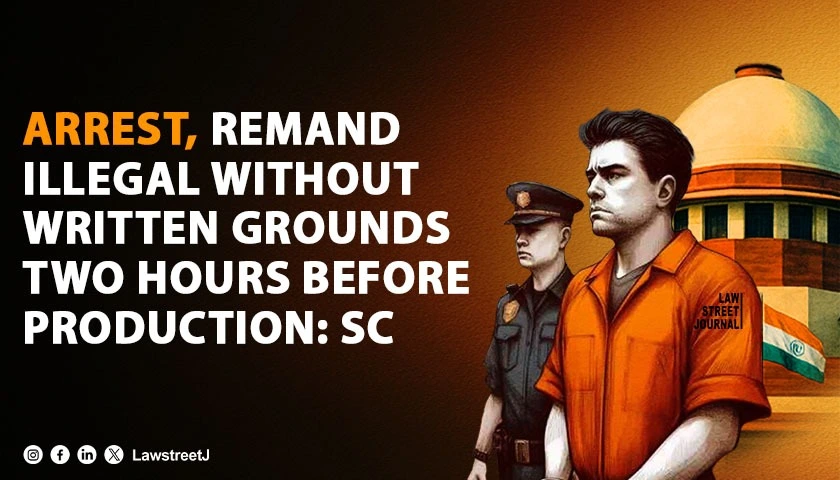New Delhi: The Supreme Court of India has ruled that failure to provide written grounds of arrest at least two hours before the accused’s production before a Magistrate renders both the arrest and subsequent remand illegal.
The ruling was delivered by a Bench comprising Chief Justice B.R. Gavai and Justice Augustine George Masih in Mihir Rajesh Shah v. State of Maharashtra & Another (Criminal Appeal No. 2195 of 2025), decided on November 6, 2025.
The Court held that law enforcement authorities are constitutionally bound to furnish written grounds of arrest in every case, irrespective of the nature of the offence or the statute under which the arrest is made.
The appeal arose out of a 2024 Mumbai hit-and-run case in which the appellant, Mihir Rajesh Shah, was accused of causing the death of a motorist while driving a BMW at high speed. He was arrested under provisions of the Bharatiya Nyaya Sanhita, 2023, and the Motor Vehicles Act, 1988.
Challenging the legality of his arrest, Shah contended that the investigating authorities failed to furnish the written grounds of arrest, violating Article 22(1) of the Constitution and Section 47 of the Bharatiya Nagarik Suraksha Sanhita, 2023 (corresponding to Section 50 of the CrPC, 1973).
The Bombay High Court had earlier upheld the arrest despite acknowledging procedural lapses, observing that the appellant was aware of the offence’s nature. However, the Supreme Court disagreed, noting that constitutional compliance cannot rest on “presumed awareness” or oral intimation.
The Bench underscored that the right to be informed of the grounds of arrest is a fundamental safeguard, not a procedural formality.
Also Watch
“To achieve the intended objective of Article 22(1), the grounds of arrest must be furnished in writing in each and every case, in a language the arrestee understands,” the Court stated.
Drawing from precedents such as Pankaj Bansal v. Union of India, Prabir Purkayastha v. State (NCT of Delhi), and Vihaan Kumar v. State of Haryana, the Court extended this principle beyond special laws like PMLA and UAPA to all offences under the Bharatiya Nyaya Sanhita.
Significantly, the Court laid down a clear procedural timeline. If written grounds of arrest cannot be provided immediately, such as during offences committed in flagrante delicto, the arresting officer may communicate the reasons orally.
However, the Court held that a written copy must be furnished within a reasonable timeframe — and in any case, not later than two hours prior to the production of the arrestee before the Magistrate for remand proceedings.
Failure to meet this deadline, the Court said, renders the arrest and remand unconstitutional, entitling the accused to be released.
The Bench explained that this two-hour window ensures the accused and their counsel have adequate opportunity to review the basis of the arrest and effectively oppose remand or seek bail.











